
Krishna demonstrates how to make philosophy relevant when presenting the concept of the modes in the Bhagavad-gita’s fourteenth chapter. Krishna first outlines the main characteristics of the modes (14.05-09). Then he states that the modes compete for supremacy with each other (14.10) — a statement that points to their competition within Arjuna’s mind.
Wasn’t Arjuna’s turmoil caused by the fact that he had to fight against his venerable elders? Yes, but that fact was known to him long before he came to the battlefield. Then why did he suddenly become overwhelmed before the war? Moreover, if the outer conflict alone was responsible for his discombobulation, why did it overwhelm him alone, not any of his brothers, not even the virtuous Yudhishthira? Because of the modes. The same external conditions may trigger different internal modes within different people, based on their particular dispositions, convictions and aspirations; hence their varying reactions.
Krishna further describes the defining psychological characteristic when each of the modes becomes predominant: clarity amid goodness (14.11), impulsive activity amid passion (14.12) and deluded incoherence amid ignorance 14.13). Arjuna’s statements at the start of the Gita exhibited all these characteristics — a claim to clarity that their fighting was motivated by greed (01.37-38), an impulsive urge to quit fighting (01.46) and a despairing inability to decide (02.06).
Compassionate Krishna equipped Arjuna with spiritual self-understanding to observe the modes (14.22-25) and with bhakti practice to tolerate and transcend the modes (14.26), thus guiding him out of his turmoil.
One-sentence summary:
When we feel inner turmoil, it is caused not just by our external conditions but also by how those conditions trigger various modes within us.
Think it over:
- Why is the outer conflict insufficient to explain Arjuna’s inner turmoil?
- How does Krishna’s description of the modes help Arjuna make sense of his turmoil?
- How does Krishna help Arjuna to come out of his turmoil?
***
14.10: Sometimes the mode of goodness becomes prominent, defeating the modes of passion and ignorance, O son of Bharata. Sometimes the mode of passion defeats goodness and ignorance, and at other times ignorance defeats goodness and passion. In this way there is always competition for supremacy.
To know more about this verse, please click on the image

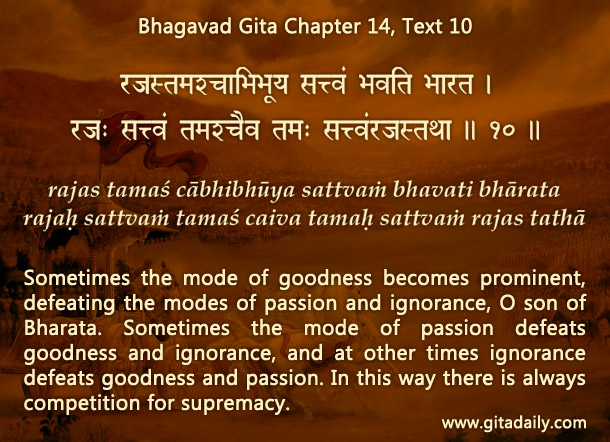

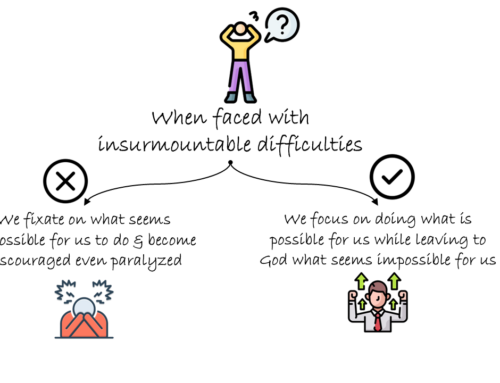

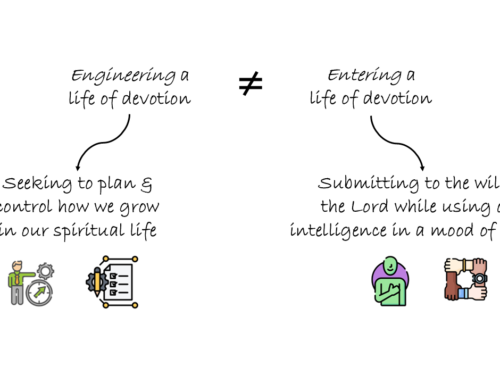

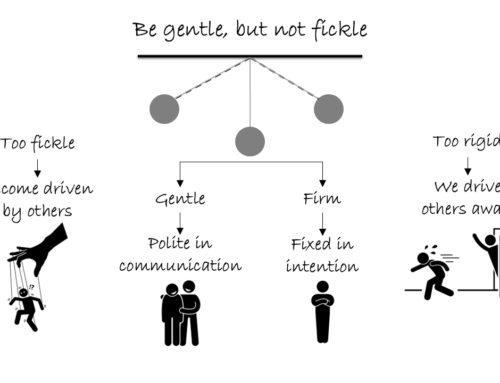
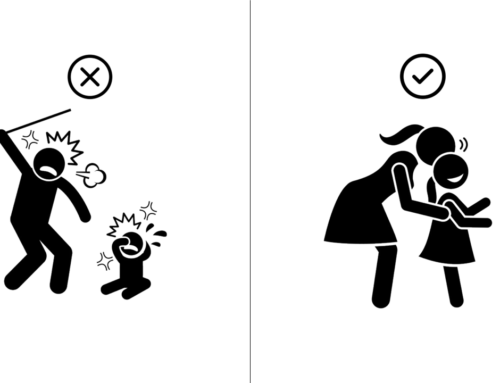
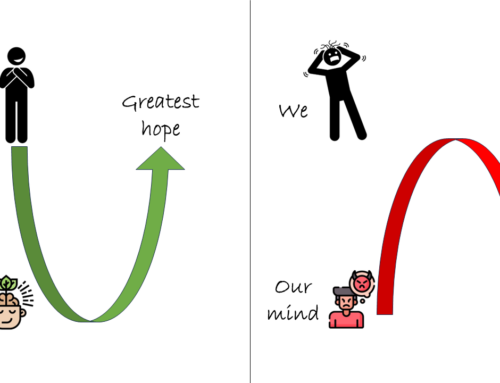


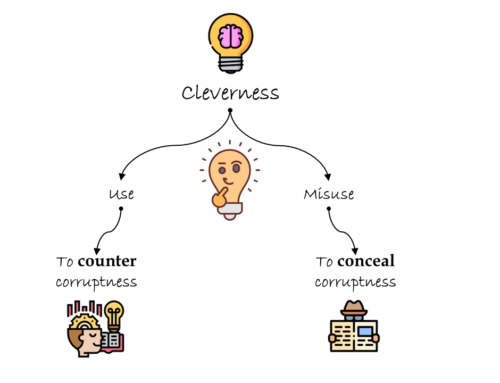
A STOIC NEVER REVEALS INNER TURMOIL ON FACE
Yes, this is nicely explained – clarity amid goodness (14.11), impulsive activity amid passion (14.12) and deluded incoherence amid ignorance 14.13).
Thank You,
Ys,